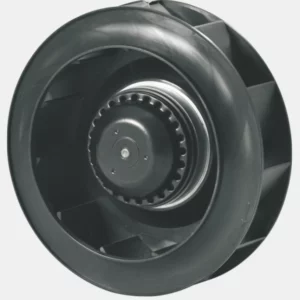The quality of a fan’s electrical components, such as wiring and connectors, can significantly impact both its performance and safety in several ways:
- Performance:
- High-quality electrical components ensure efficient power transmission and distribution within the fan system. Properly sized and rated wiring and connectors minimize electrical resistance, reducing energy losses and maximizing motor performance.
- Quality electrical components also help maintain stable voltage levels, ensuring consistent operation of the fan motor and associated control systems. This stability contributes to reliable fan performance, especially in demanding or critical applications.
- Well-designed wiring layouts and connectors facilitate easy installation and maintenance of the fan system, minimizing downtime and improving overall operational efficiency.
- Safety:
- Reliable electrical components are essential for ensuring the safety of the fan system. Inferior wiring or connectors may pose a risk of electrical faults, such as short circuits or loose connections, which can lead to overheating, arcing, or even electrical fires.
- High-quality insulation materials and construction techniques provide effective electrical isolation, preventing accidental contact with live conductors and reducing the risk of electric shock to personnel.
- Properly rated and certified electrical components comply with safety standards and regulations, ensuring that the fan system meets relevant electrical codes and requirements for safe operation in various environments.
- Durability:
- Electrical components manufactured from durable materials and designed for long-term reliability withstand the mechanical stresses and environmental conditions encountered during fan operation. backward curved centrifugal fan This durability extends the service life of the fan system and reduces the need for frequent maintenance or replacement.
- Quality wiring and connectors resist degradation from factors such as moisture, heat, vibration, and chemical exposure, maintaining their electrical integrity and performance over time. This resilience contributes to the overall robustness and reliability of the fan system, even in challenging operating environments.
- Compatibility:
- Electrical components designed to specific standards and specifications ensure compatibility with other system components, such as motor controllers, sensors, and safety devices. This compatibility facilitates seamless integration and interoperability, allowing for efficient and effective fan operation.
- Well-engineered wiring and connectors accommodate the electrical requirements and constraints of the fan system, including voltage levels, current capacities, and signal transmission characteristics. This ensures optimal performance and functionality without compromising safety or reliability.
In summary, the quality of a fan’s electrical components directly influences its performance, safety, durability, and compatibility. Investing in high-quality wiring, connectors, and other electrical elements is essential for ensuring reliable operation, minimizing risks, and maximizing the longevity of the fan system.
